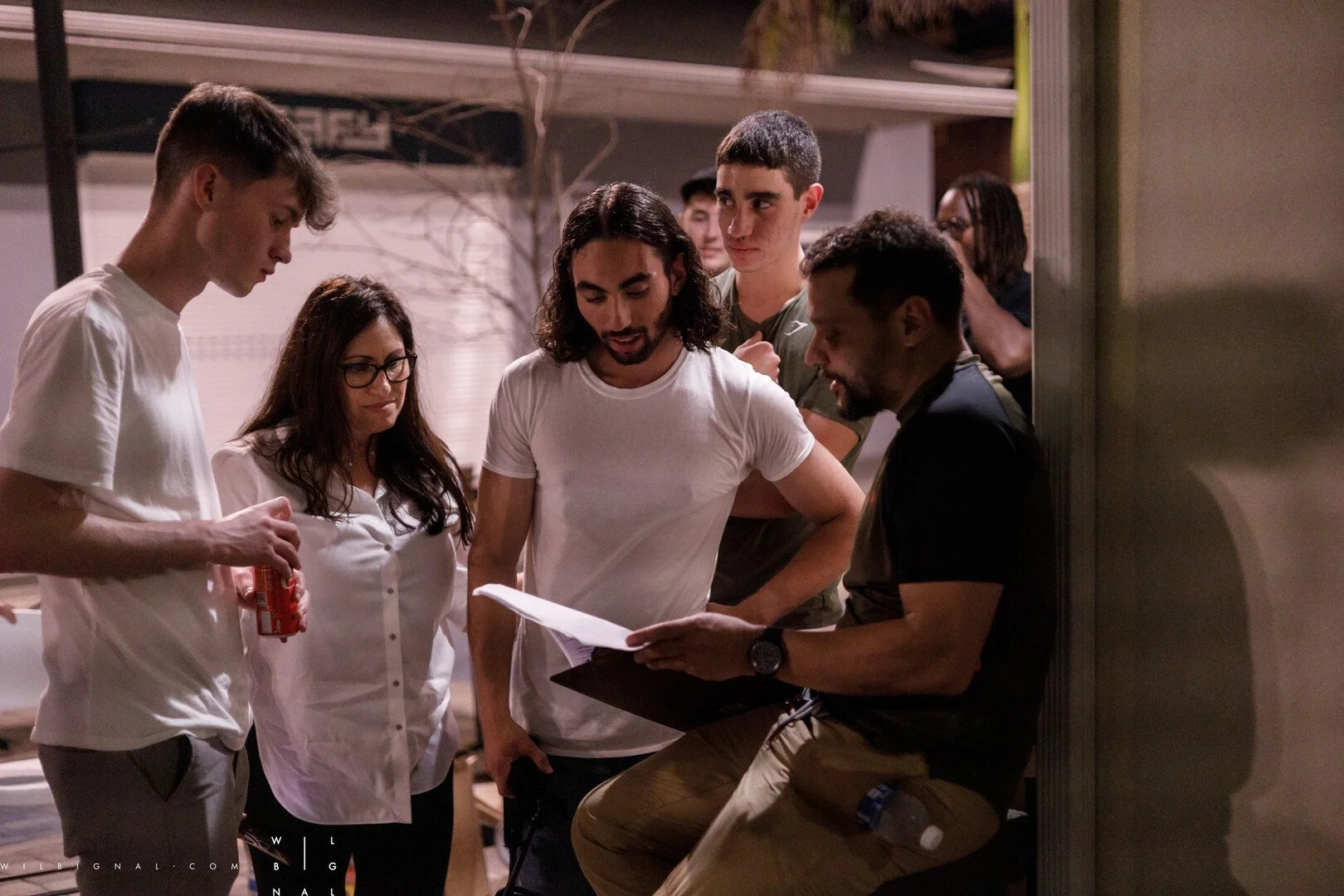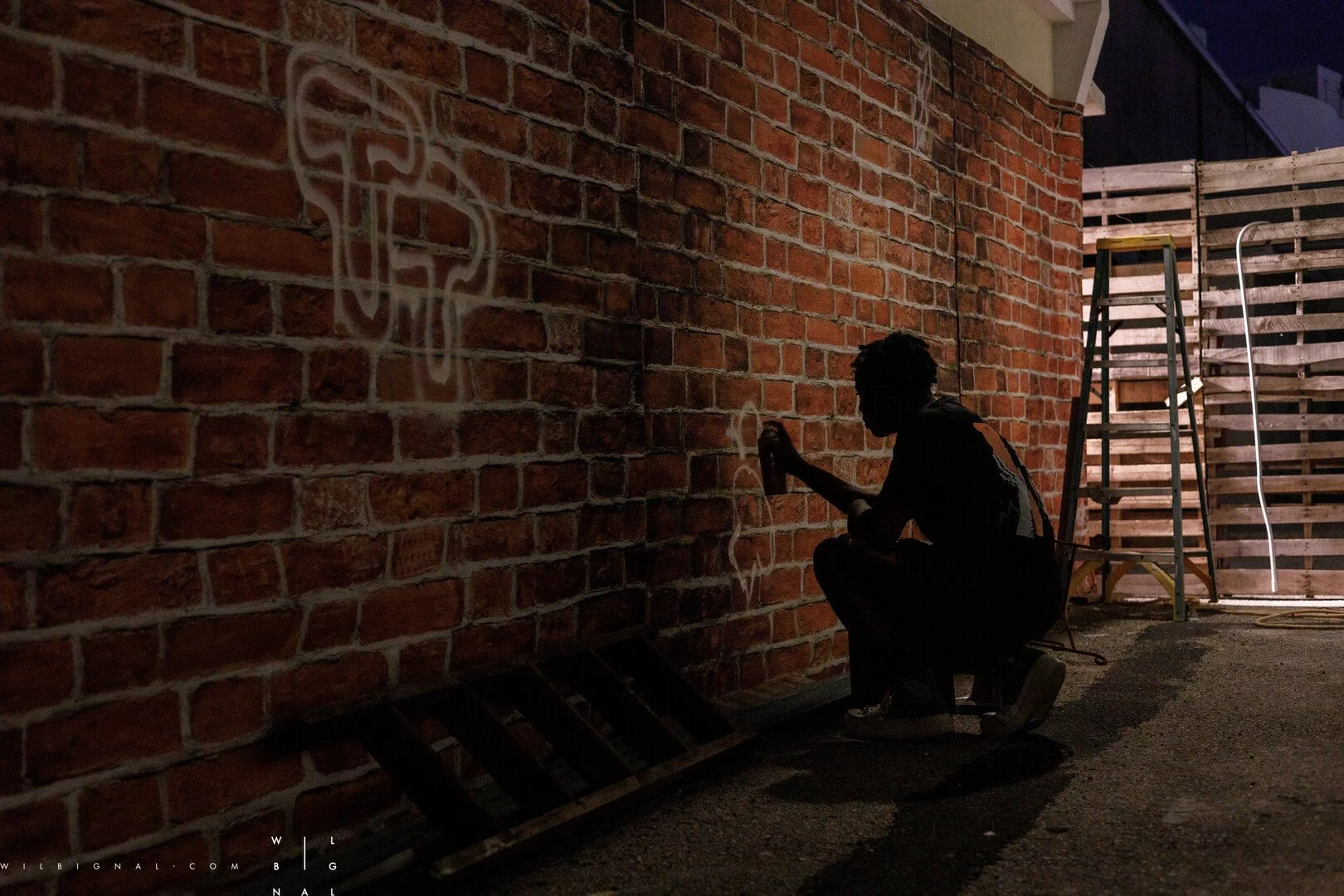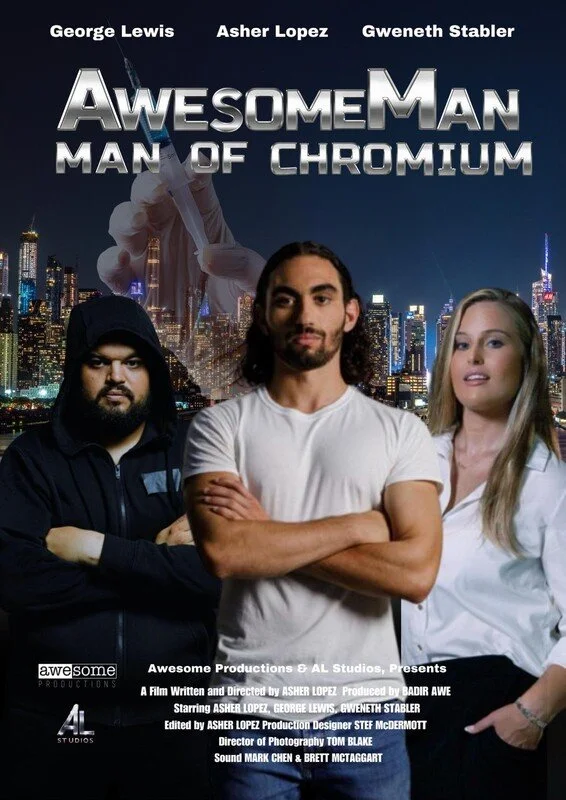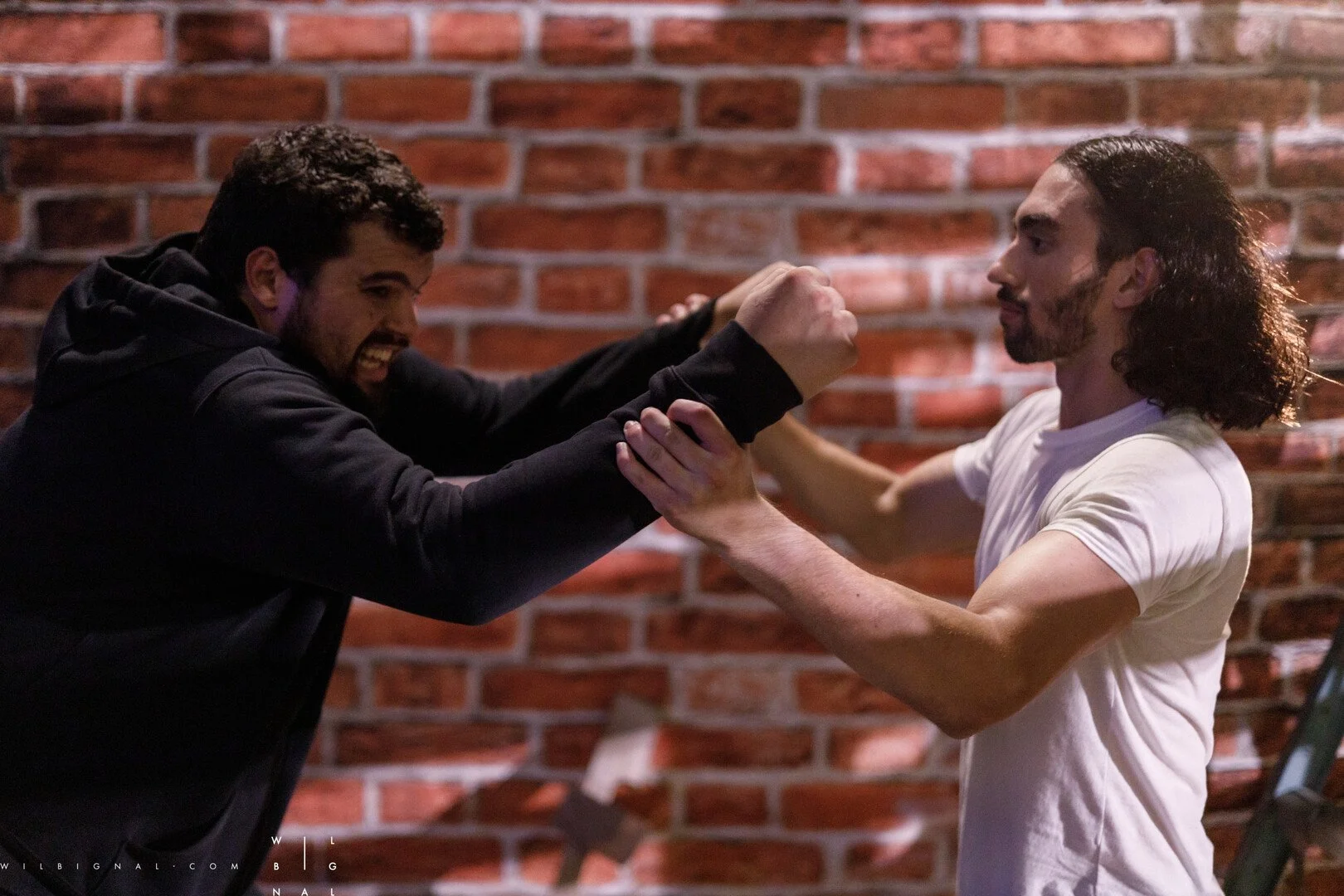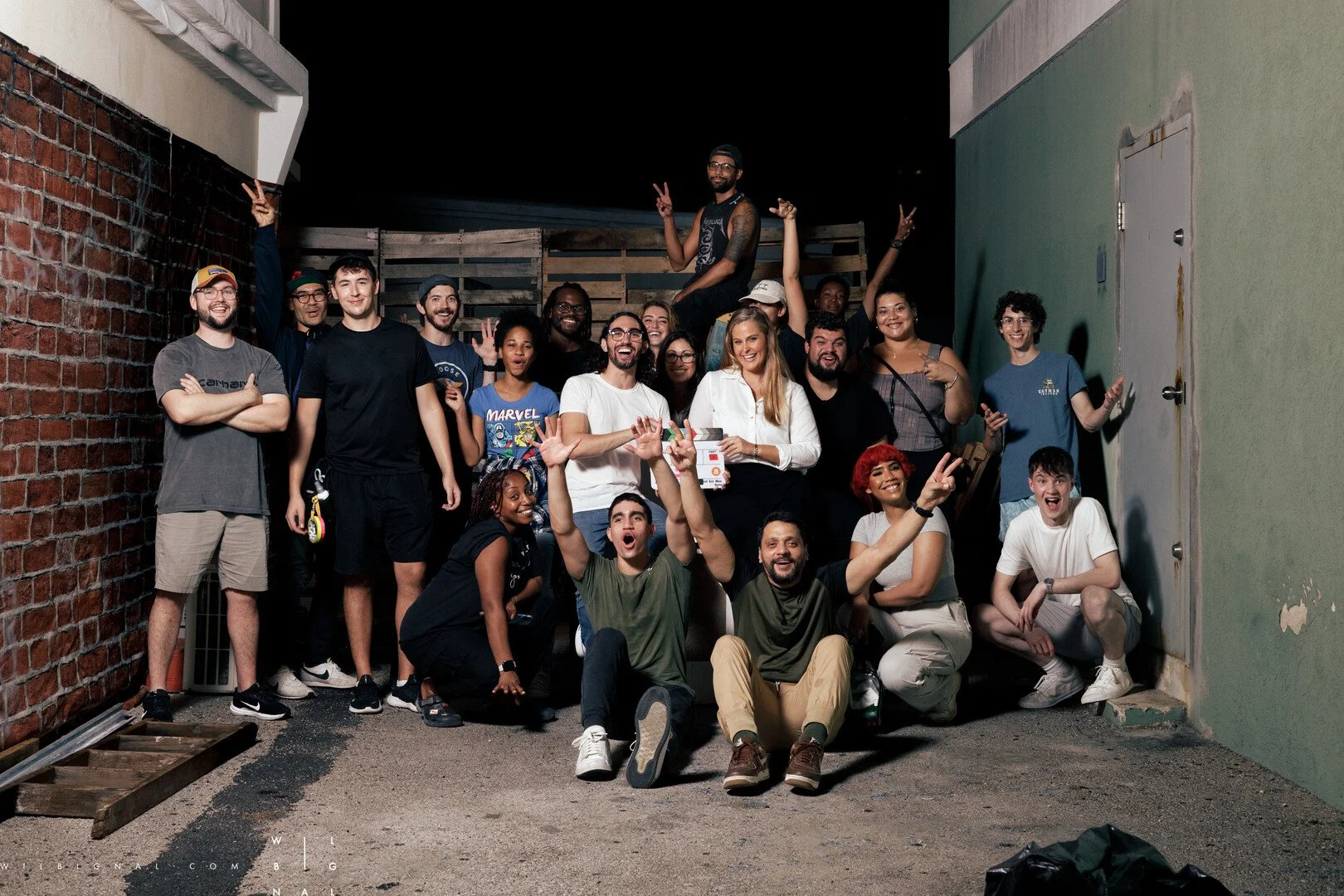How Asher Lopez Is Pioneering the Caribbean’s First Superhero Universe
Welcome Asher, we are very excited to have you today with us to discuss about your work.
Who is Asher Lopez and how did the passion for creating begin?
I am a Creative Entrepreneur and Visionary from the Cayman Islands, driven by a passion for authentic and innovative storytelling that inspires, influences, and impacts culture. From an early age, I was naturally creative, imaginative, ambitious, business-savvy, and forward-thinking, always finding ways to bring my ideas to life. Frequent visits to Disney World amplified that inspiration, and I expressed my creativity through drawing, filling notebooks with worlds of wonder born from my imagination.
Cinema became another source of inspiration. Growing up, I frequently went to the movies and was captivated by the emotions films could evoke. I vividly remember associating certain feelings with the exact cinema booth where I first experienced them, or walking through theater halls feeling nostalgia for films that had become part of history.
Those moments of wonder and emotional connection sparked a lifelong passion for storytelling. Today, with the direction mainstream cinema is taking, I feel a responsibility to create films I myself would want to watch—crafted with the perfectionist standards and creative integrity I hold dear. My goal is to make stories that resonate with audiences and leave a lasting cultural impact.
Can you tell us a bit about your previous work?
This short film is my first professional piece of work, serving as my introduction into the film industry. It is also designed as a proof-of-concept for a larger, high-end feature-length film currently in development. While this marks my official debut on the professional stage, storytelling and creativity have been a constant throughout my life—from drawing and building imaginative worlds as a child to exploring visual expression through personal projects.
This short represents the culmination of years of passion, dedication, and vision, where I’ve been able to channel my creativity into a cinematic form that can resonate with audiences. My focus has always been on authenticity and emotional impact, and with this project, I set out to create something that not only entertains but also establishes the foundation for the stories I want to tell moving forward.
AwesomeMan began as a fifth-grade idea and became the Cayman Islands’ first locally produced superhero film. What was it like revisiting that childhood vision as an 18-year-old filmmaker?
Honestly, I never expected to revisit the script so soon—immediately after graduating high school in 2023. At the time, my sole focus was on building a career as a recording artist. Shifting from music to filmmaking was an unexpected redirection, but one that felt natural once I embraced it.
AwesomeMan is a character and story I’ve carried with me since the fifth grade (2015–16), and although I always intended to bring him to life one day, I didn’t anticipate pursuing it this early. Returning to that childhood vision was both exciting and surreal—filled with a quiet awe that this long-held dream was finally taking shape. I’ll never forget the night I received feedback on the script and was offered the opportunity to have a scene produced for free. In that moment, it felt almost cinematic—like Mr. Incredible in The Incredibles when he’s called back into action by Mirage, smiling at the pictures on his wall as the camera pans around his subtle yet powerful expressions, music swelling, preparing to relive the superhero life he’d long missed. That same spark lit within me, and I knew I was stepping into a new chapter of higher purpose I was meant to pursue.
CONVERSATION ABOUT: '‘AwesomeMan''
You placed real-life icons like Alexander Graham Bell and Coco Chanel in your story — a bold and unexpected choice. What inspired you to blend history with superhero fiction?
When I first came up with the idea at ten years old, I wasn’t consciously thinking about blending history with superhero fiction—it just came naturally. I knew Henry Miller, who becomes AwesomeMan, needed someone to create the serum that gave him his powers and someone to design his superhero suit. At the time, my idea for a serum was actually inspired by Despicable Me 2 (2013)—I hadn’t discovered Marvel yet and knew nothing about Captain America’s “Super Soldier Serum.” So, I started researching real figures. I explored different scientists and landed on Alexander Graham Bell as the best fit.
Then I researched fashion designers and chose Coco Chanel to design his suit. I decided to make them a married couple in the larger feature-length story because I needed two core figures in the transformative arc of Henry’s life who could act as gatekeepers—one to equip him with the serum, and the other to craft his identity through the suit. Looking back now, I realize just how bold, fresh, and innovative that choice really is—not only narratively, but also in terms of branding. Tying the legendary Chanel name to the creation of a superhero’s suit creates a clever cultural bridge that feels both iconic and genre-defying.
You’ve described this as the birth of the Lopez Cinematic Universe. What does a Caribbean-rooted cinematic universe look like in your imagination?
Thank you for asking this, because I want to clarify upfront: the Lopez Cinematic Universe is not a Caribbean-cultured universe in the traditional sense. Its stories are designed to be globally appealing—CGI-driven, blockbuster spectacles with universal resonance—rather than rooted strictly in Caribbean folklore or stereotypes. What makes it “Caribbean” is not the subject matter, but the milestone itself: I am the first filmmaker from the Caribbean, and the youngest, to pioneer an interconnected superhero universe. That achievement carries cultural significance, even though the creative vision is shaped for the world stage. I’ve studied how Marvel and DC built franchises that transcend borders, and I’m building on those lessons with my own fresh, innovative approach to create a legacy that can stand alongside industry giants. While the universe itself isn’t defined by Caribbean identity, I do see the potential to one day introduce a hero or civilization inspired by Caribbean and Caymanian roots—fictional, imaginative, and seamlessly woven into the larger narrative. For now, its foundation is global, built to resonate with audiences everywhere while carrying the distinction of being pioneered from the Caribbean.
You shot AwesomeMan as a no-budget production. What creative hacks or bold decisions kept the vision alive when resources were limited? Was there a particular moment during production that made you think: Yes, this is working — AwesomeMan is real?
What kept the vision alive, despite limited resources, was passion. As the project’s visionary, I set the tone by keeping the atmosphere exciting, which inspired the team and sponsors who supported us. Community sponsorship and collective effort played a huge role, but so did creative problem-solving. Many original shots had to be reimagined to fit available locations, yet we still found ways to achieve the outcomes. Clever camera angles, combined with editing, helped us “sell” moments that couldn’t be captured traditionally. We worked with a cost-effective VFX artist on Fiverr, layered royalty-free sound effects to suggest off-screen action—like New York traffic, gunfire, or Henry breaking the sound barrier—and paired it with music to heighten emotional intensity. These choices allowed us to deliver the experience of a big story, even without major studio backing. The moment I knew AwesomeMan was real didn’t come during production, but when we released the trailer publicly. From the emotional engagement of audiences at our local premieres to the accolades and recognition we began receiving at European film festivals, it was clear the vision had truly connected. Like Walt Disney, I find the real reward not in commercial success but in the audience’s reaction. Seeing their excitement and emotional response told me, without a doubt: Yep, this is going to work. AwesomeMan is real.
You’ve spoken about restoring innocence and family-friendly values to cinema. How does AwesomeMan reflect that mission?
AwesomeMan reflects that mission by embracing wholesome storytelling grounded in universal values. The dialogue is clean and free of vulgar language, and the narrative avoids political agendas or glamorizing substance use. Instead, it focuses on timeless themes of courage, resilience, and hope. At its core, the short film delivers a strong anti-bullying message. In one key moment, when the Thug makes a dismissive comment that triggers Henry’s childhood trauma, Henry chooses to confront him—not only to stand up for Stacey, but also to reclaim the power his younger self once lacked. This confrontation symbolizes Henry becoming the hero of his own life, transforming pain into strength. The Thug represents the reality of modern-day bullying in adulthood, making the scene both relatable and empowering. Ultimately, AwesomeMan celebrates innocence by showing that heroes don’t have to be gritty or cynical to inspire. It’s about restoring the sense of wonder and hope that first made generations fall in love with cinema—reminding audiences that family-friendly stories can still carry profound emotional weight and cultural impact.
In future projects, do you plan to explore similar genre intersections, or are there other genres you're eager to explore ?
I’m glad you asked, because there are so many stories and genres I’m eager to explore. My long-term vision involves multiple production ventures, each with its own creative identity. AL Studios is dedicated exclusively to the Lopez Cinematic Universe—primarily rooted in the superhero genre but enriched with thoughtful intersections that suit each character’s personality and arc. This structure allows the franchise to evolve while maintaining a cohesive, interconnected world. At the same time, I plan to launch separate production companies focused on non-superhero stories. These will range from powerful one-off films to franchises with sequels and episodic continuity, but they won’t exist within a shared cinematic universe. This gives me the freedom to experiment with different genres, tones, and storytelling styles without diluting the vision of the LCU. By dividing my work across these ventures, I can innovate within the superhero space while also being diverse, creating fresh, standalone projects in other genres. Ultimately, this balance of interconnected and independent storytelling ensures every project has room to breathe, resonate with audiences, and contribute meaningfully to my broader mission as a filmmaker and entrepreneur.
If you could sum up the film’s core question in a single sentence that would make someone want to watch it immediately, what would it be?
The short film itself: 'Will you let history repeat itself or will reclaim the power within?'
This marks the conclusion of the interview featuring our esteemed artist, Asher Lopez. Our community is growing steadily, with a continuous influx of skilled filmmakers and screenwriters joining us. Explore our other interviews, and consider scheduling one for yourself to showcase your creative endeavors.

